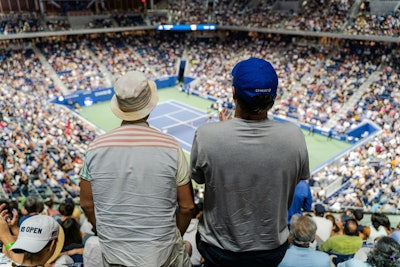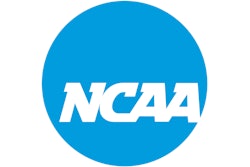
University of North Carolina student-athlete Reese Brantmeier is narrowing her prize-money lawsuit against the NCAA to focus only on college tennis players.
As reported by The Carolina Journal, Brantmeier amended her suit after a federal judge rejected an injunction that would have covered athletes in multiple college sports.
Related: Federal Judge Rejects Injunction in UNC Tennis Player's Lawsuit Against NCAA
According to the Journal, the latest version of Brantmeier’s suit filed Friday challenges NCAA rules that block tennis players from accepting prize money from pro tournaments. Brantmeier hopes to secure class-action status for all men and women seeking to compete in Division I tennis.
“Plaintiffs and the Classes challenge the NCAA’s arbitrary prize money restrictions, seeking damages and declaratory and injunctive relief to strike such restrictions that prevent Plaintiffs and the Classes from retaining the full amount of monetary prizes earned through their athletic performance in non-NCAA competitions without jeopardizing their collegiate eligibility,” the amended complaint reads.
“The NCAA has long instituted a money first, student-athletes second approach in its operations, rules, and regulations," the complaint continues. "For over a century, from its inception until July 1, 2021, the NCAA prohibited the gifted student-athletes at its member institutions3 from receiving any compensation for their athletic performance and services beyond an athletic scholarship and certain other educational-related benefits."
At the same time, the NCAA “has generated billions of dollars in income,” according to the suit. Brantmeier’s lawyers highlight recent changes that have allowed athletes to benefit from payments linked to the use of their name, image and likeness.
“Plaintiffs seek to lift the veil of hypocrisy on the NCAA’s practice of allowing primarily Division I football and men’s basketball student-athletes, who play profit-generating sports in the Power Conferences, to receive virtually all of the pay-for-play money distributed by Collectives while prohibiting student-athletes who compete in Tennis from accepting Prize Money earned in non-NCAA competitions, including but not limited to the US Open Tennis Championships, the Australian Open, Roland Garros a/k/a the French Open, and the Championships, Wimbledon,” the amended complaint argues, as reported by Journal staff.
In a separate document filed Friday, NCAA lawyers objected to Brantmeier’s request to have her case cover all NCAA Division I tennis players after she dropped an earlier class-action request, the Journal reported.
Brantmeier “seeks data for all tennis student-athletes — from more than 260 Division I programs — for a five-year period,” NCAA lawyers wrote, as reported by the Journal. “Defendant has estimated that this RFP, as presently drafted, could implicate records for approximately 20,000 men and women tennis student-athletes. Depending on the scope of the request ultimately authorized by the Court, this RFP could include academic records, medical records, financial data, correspondence, and personal identifying information — breathtaking in scope, sensitivity, and complexity. Plaintiff’s sweeping requests will take significant time to collect, review, and redact as appropriate before production.”
Brantmeier and the NCAA also propose different timelines for the case, though both parties suggest deadlines extending into 2026.
Brantmeier’s individual case was based on $49,000 she won during the 2021 US Open.
Related: NCAA Hit With Another Lawsuit, This Time Over Student-Athlete Prize Money





































